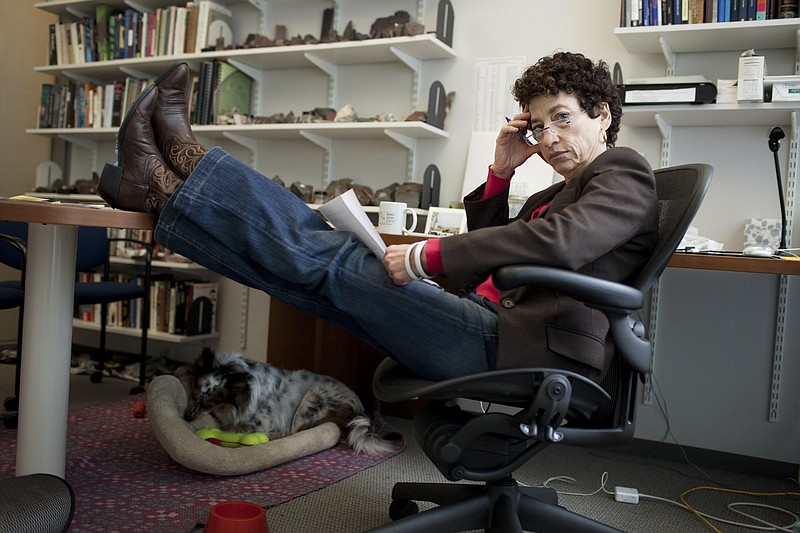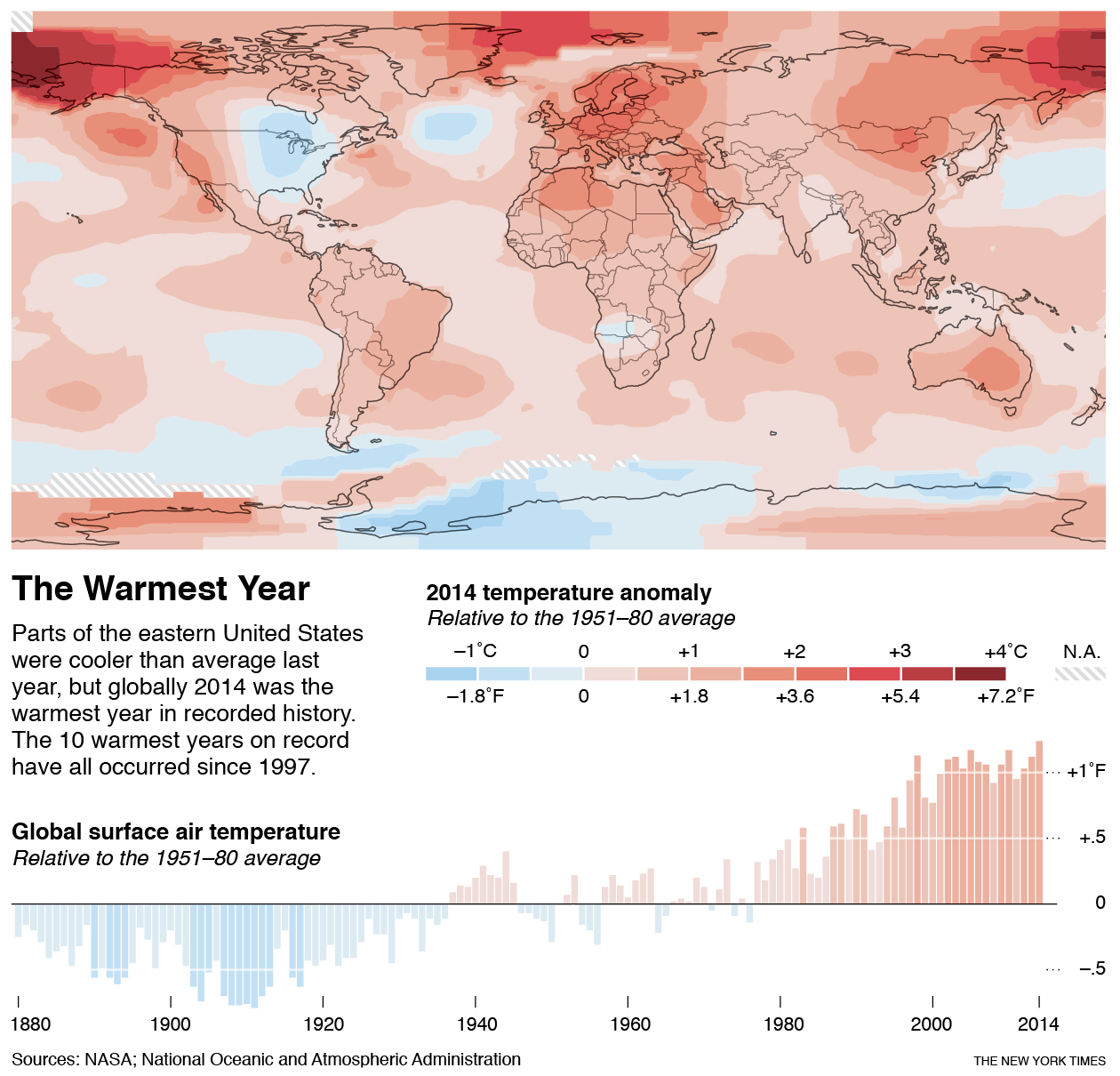Dr. Naomi Oreskes is a geologist and professor at Harvard University who, more than a decade ago, shifted from mining ore to mining historical archives to expose the research aimed at undermining climate change policy.
By exploring the history of climate change denial, she has shaken things up. She and colleague Dr. Erik M. Conway have found that the same handful of scientists who consistently stir doubt on climate change also were the ones who in previous decades muddled science on other contemporary issues like tobacco, acid rain and the ozone shield. Further, they have consistently teamed with and been funded by corporations and political/policy think tanks with biased interests.
In a 2010 book, Oreskes and Conway called these men "Merchants of Doubt," and they document how this small group of scientists, in case after case, denied the existence of scientific agreement, even though they themselves were pretty much the only ones who disagreed. Now their book is a documentary film by Robert Kenner.
According to a Monday story in the New York Times about Dr. Oreskes and her research, the handful of scientists were described as men who had major career triumphs during the Cold War, but in subsequent years came to equate environmentalism with socialism, and government regulation with tyranny. In the 1960s they joined with think tanks and private corporations like R.J. Reynolds Tobacco Co. to challenge scientific evidence on tobacco. In later years, their various works to blur environmental issues came from the fossil fuel industry.
To see climate change
climatecentral.org/news/us-shows-rapid-rise-of-temps-since-the-first-earth-day-in-1970-15893
Oreskes' work began in the early 2000s, a time when most of us were consistently being led to believe that scientists were still divided over whether humans were mostly to blame for a warming planet. But then she decided to actually count the published scientific papers. She was stunned when she pulled 928 papers and found that not one dissented from the basic findings that warming was underway and human activity was the main reason. Now such "counts" have become common ,and today 97 percent of working climate scientists accept that global warming is happening, that humans are largely responsible, and that the situation poses long-term risks.
Of course none of that means climate denial has been put to rest.
On Tuesday, Pope Francis made headlines when a leaked draft document meant for Catholic bishops revealed that he planned to take a strong stance on climate change.
"Humanity is called to take note of the need for changes in lifestyle and changes in methods of production and consumption to combat this warming, or at least the human causes that produce and accentuate it," the pope wrote in a 191-page encyclical. "Numerous scientific studies indicate that the greater part of the global warming in recent decades is due to the great concentration of greenhouse gases given off above all because of human activity."
Republicans - the most vocal deniers these days - were not happy.
On Tuesday, former Florida Gov. Jeb Bush, a practicing Catholic, dismissed the pope's stance.
"I hope I'm not going to get castigated for saying this by my priest back home, but I don't get economic policy from my bishops or my cardinals or my pope," Bush said. "And I'd like to see what he says as it relates to climate change and how that connects to these broader, deeper issues before I pass judgment. But I think religion ought to be about making us better as people and less about things that end up getting in the political realm."
Rick Santorum, another 2016 Republican presidential candidate and Catholic, said, "We probably are better off leaving science to the scientists. When we get involved with political and controversial scientific theories, I think the church is probably not as forceful and credible."
On Wednesday, the headline of the day was that Rush Limbaugh (another scientist of no note) was using the occasion to once again call the pope "a Marxist."
Never mind in any these attacks that Pope Francis has a master's degree in chemistry. (Santorum's college work was in political science, Bush has a degree in Latin American Studies and Limbaugh began working as a disc jockey at 16.)
Meanwhile, back home in Bush's hurricane-prone Florida, Miami Archbishop Thomas G. Wenski is planning a summer of sermons to highlight what a warming planet, rising seas and increasingly extreme storms mean for Florida's poor and most vulnerable residents.
The bottom line, of course, is money. Corporate money - not government money and not tax money. (RJR alone spent $45 million from 1979 to 1985 for biomedical research that could generate evidence and cultivate experts to be used in court to defend the "product," according to the book "Merchants of Doubt.")
Just as "Big Tobacco" worked to throw sand and cash at any argument linking tobacco to early death, the corporate forces of coal, petroleum and energy - in short any profit-making company that could be slowed or forced to change by attention to concerns about climate - have and will continue to be modern-day merchants of doubt working to suborn any perceptions of scientific consensus or certainty.
The simple fact is that one doesn't have to be a scientist to understand that not trashing our home and planet is just what the pope suggests.
It's the moral and right thing to do.

